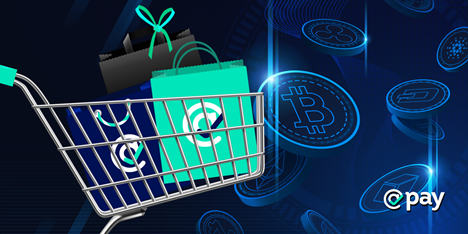Blockchains have enabled us to embed currencies within a decentralized network and create smart contracts to exchange economic value. We can simply imagine an eCommerce transaction on blockchain as a direct agreement between a buyer and seller, verified by the entire network of validators. In case, there is a disagreement (for example, goods being below par or wrong product being sent), the smart contract can reverse the transaction automatically.
In a nutshell, blockchains are creating a globally decentralized network of businesses, creators, merchants, and shoppers who can capture the entire value of the transaction without paying any extra fees to an intermediary. In that retrospect, eCommerce represents one of the largest use cases for blockchains, from both consumers’ and business’ points of view.
Here’s How Blockchain Impacts eCom
Better Credit Systems
Easy access to finance remains one of the key challenges that people face. Shoppers are often faced with high-interest rates charged by traditional financial service providers. They also have to bear penalties for making late repayments, which substantially impacts their buying decisions.
@Pay is a project that has come up with an effective solution to this. It is a decentralized buy-now-pay-later protocol that is focused on helping users side-step high credit card fees and ‘hidden’ intermediary charges. Users of @Pay can avail zero-interest credit and pay for their online purchases in multiple tranches over a significant amount of time. Besides, users are rewarded in cryptocurrencies for timely repayment.
Secure Personal and Financial Data
Every shopping transaction that a customer makes with a centralized intermediary entails them to give up personal and financial data like name, email address, phone number, delivery address, credit card number, and passwords. Time and again, hacks and security breaches in centralized computer servers have led to users’ data being misused in many ways, including financial losses, fraudulent transactions, and scams.
Blockchains, on the other hand, use complex cryptographic methods to perform data encryption, which can help eCommerce platforms. Using blockchain will mean that hackers and malicious network participants will not be able to recognize and decipher users’ personal and financial data for their illicit purposes.
Better Rewards and Referral Programs
Blockchain and cryptocurrencies can be used to reward and incentivize users who contribute to the growth of the network, both personally through their own usage of the network, and professionally, while marketing the benefits of the network to others. Given the global nature of blockchains, any eCom platform can seamlessly make microtransactions to its customers without worrying about where they are based. This would mean that users will receive rewards directly funded into their wallets, thus making reward and referral programs more attractive to them.
Immutable Proof of History
Blockchains are immutable by nature, meaning that data once verified and stored cannot be changed or manipulated. The use of this in eCom is that it can help with verifying customer reviews based on their purchase history, tackling issues of counterfeit product deliveries, and easily accessible record of every transaction detail for store managers.
Towards Global Decentralized Marketplaces
Today, we stand on the cusp of a revolution in eCommerce. For the first time in history, users and merchants will be able to take part in decentralized networks that have their financial and aspirational interests taken care of via smart contract code. Similar to how the internet changed the way we shop, now, blockchain and cryptocurrencies will further improve eCommerce for both customers and merchants.
